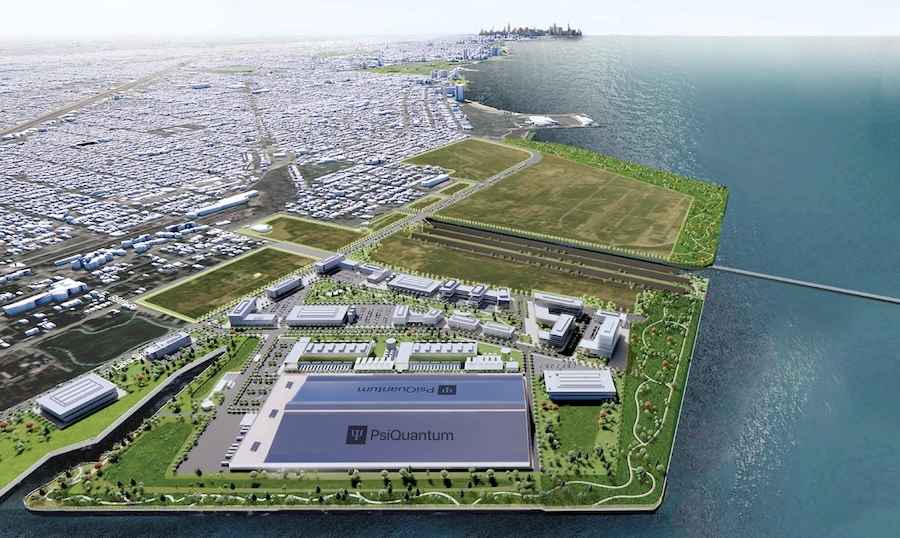Technology
July 28, 2025
University of Chicago and IBM launch first Quantum Startup Accelerator.
StartMidwest

Become a member & keep reading for free, or choose a paid membership.
Access all our content & email newsletter
The University of Chicago and IBM have officially announced a partnership to speed up Illinois’ push into the world of quantum technology. Essentially, this is a move forward for the state's ambition to become a major national and potentially global center for quantum computing innovation. The partnership involves hefty investments, building new infrastructure, and launching various programs all focused on supporting startups and expanding the overall ecosystem for quantum research and bringing these advances to market.
At the heart of it all is the Duality accelerator - the first of its kind in the U.S. exclusively dedicated to quantum startups - and located in Hyde Park, on the south side of the city. It’s led jointly by the University of Chicago’s Polsky Center for Entrepreneurship and Innovation and the Chicago Quantum Exchange. Duality offers early-stage companies one-of-a-kind access to IBM’s quantum systems and cloud tech, including the state-of-the-art IBM Quantum System Two. This hardware - set to be installed at the Illinois Quantum and Microelectronics Park (IQMP) - will let startups test out their quantum software right in a real-world setting, which is huge. Plus, Duality isn’t just about access; it also provides mentorship, strategic advice, and funding support through IBM Ventures, the company’s global venture arm. Since starting back in 2021, the program has helped more than 25 startups, secured over $50 million in follow-on funding, and created an extensive network of investors and corporate partners.
But this partnership isn’t just about supporting startups now, it’s about building long-term leadership. For example, there’s the planned creation of the National Quantum Algorithm Center (NQAC), a collaborative effort involving the University of Chicago, IBM, Illinois state officials, and multiple academic partners. With its location at Hyde Park Labs and the Discovery Partners Institute, the NQAC aims to unite theorists, engineers, and industry folks to develop advanced software and delve into quantum algorithms. This helps solidify Illinois’ reputation as a powerhouse in quantum research and application.
The partnership is also looking ahead to the next decade, with initiatives like the IBM-Illinois Discovery Accelerator Institute, which was first announced in 2021. This is a long-term, 10-year collaboration between IBM and the University of Illinois Urbana-Champaign, focusing on nurturing talent and pushing forward research in quantum computing, AI, and material science. It fits nicely with the University of Chicago’s ongoing efforts to boost the deep-tech startup scene within the state, including new facilities like the University of Chicago Science Incubator and Harper Court Ventures - a $25 million fund aimed at supporting sectors like quantum, AI, and sustainable technology.
Progress in Illinois isn’t happening in a vacuum either. The U.S. Department of Commerce officially recognized Illinois as a quantum technology hub back in 2023, lining up federal support alongside state and academic efforts. There are also plans to turn the old U.S. Steel South Works site in Chicago’s Southeast Side into a quantum hub, bringing together research, manufacturing, and economic growth.
Nadya Mason, the Interim Vice President for Science, Innovation, and Partnerships at the University of Chicago, emphasizes how this collaboration underscores Illinois’ leadership in the future of computing: “we’re not just accelerating innovation—we’re helping secure the nation’s technological future” she said in a statement.
Altogether, these joint efforts form a broad, multi-layered strategy. The goal isn’t just to foster quantum innovation locally, but also to make Illinois a top-tier hub for turning quantum research into practical, industrial-scale technologies. For startups, scientists, and industry players, this means access to top-tier resources, funding, and brainpower; all critical in transforming quantum computing from a scientific curiosity into real-world applications capable of revolutionizing fields like cybersecurity, materials science, and beyond.
Trending Stories




